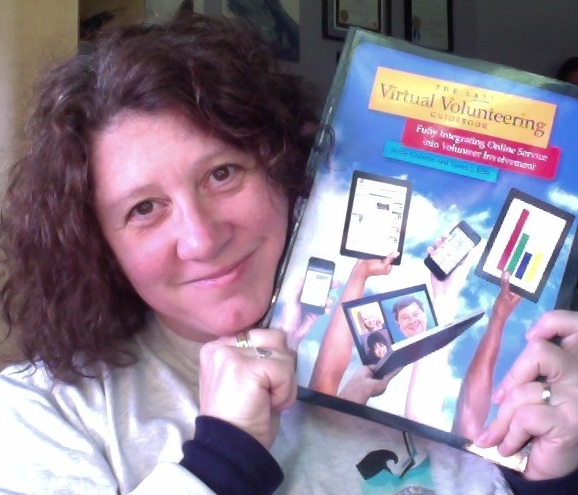 It’s happened AGAIN – the shady company Community Service Help – communityservicehelp.com – has conned another person.
It’s happened AGAIN – the shady company Community Service Help – communityservicehelp.com – has conned another person.
I just approved this comment on one of my blogs about this deceptive company. The comment says, in part:
“I wish I would have read this article before wasting my time using the community service help website. Of course the court did not accept it and now I have been put in a real bind trying to complete my hours… I have PTSD and social anxiety from my military service and was searching for a way to complete my hours when I stumbled across the website which seemed perfect for me due to my disabilities should have known it was too good to be true. I wish I could leave a review somewhere to prevent people from making the same mistake I did.”
I’m so sorry for this person’s experience – as an advocate for virtual volunteering since the early 1990s, it makes my physically ill that this company, as well as many others, are ripping people off with their scheme to charge people money to watch videos and call it “volunteering”, and to claim it will be accepted by courts. I’ve encouraged this person to contact this company and demand his money back. I also have asked him if he would be willing to talk to someone from the media about his experience with this fraud – there have been at least two local TV news stories about this shady company, and I would love to see many more.
Back in November 2012, I got an email from a TV reporter in Atlanta, Georgia who used my blogs about this racket to create this excellent, DETAILED video about this scam and the people behind it. Thanks again, Atlanta Fox 5! Of course, after an NBC affiliate in Columbus, Atlanta did a similar, shorter story, this scam company put a tag on its web site noting as featured on NBC news!
I would love to know this deceptive company’s response to the court refusing his community service hours – it’s a response they have to make regularly to people who find out the court will not accept “community service” that consists of watching videos rather than actual volunteering.
I’ve also told this person that most recently commented on my blog that, if he still needs community service, and he wants to do it online, there are MANY places to find such, with legitimate nonprofit organizations that won’t charge the volunteer, and where the volunteering will be *real* – it will actually help the organization, which is what volunteering should be.
Here are other blogs I’ve written about this deceptive company:
- Update on a virtual volunteering scam.
- Courts being fooled by online community service scams.
- online volunteer scam goes global.
- Online community service company tries to seem legit.
- What online community service is – and is not (the very first blog I wrote exposing this company, back in January 2011, that resulted in the founder of the company calling me at home to beg me to take the blog down)
Back in 2011, and again at least once since then, I wrote the Florida State Attorney General’s cyberfraud division, the Consumer Services Department of Miami-Dade County, numerous parole and probation associations, the Corporation for National Service and AL!VE to PLEASE investigate or, at least, take a stand regarding these scam companies – to date, they still have done nothing.
And, yes, I still get harassing emails and blog comments from people who supposedly are satisfied customers of this company. The commenters never use their names or location, the messages are packed with misspellings and grammar errors, they ramble on and on about how watching videos really is community service, and they call me some rather vile names. I’ve been deleting those comments – but I think I’m going to compile some and make a blog post just about those, to show you the caliber of support for this company.
2014 update: The Last Virtual Volunteering Guidebook offers detailed advice that would help any court understand how to evaluate the legitimacy of an online volunteering program. It’s geared towards nonprofits who want to involve volunteers, but any court or probation officer would find it helpful, as more and more people assigned community service need legitimate, credible online volunteering options.
12.March.2014 Update: Just found this story from Portland TV stations KATU about a similar scam in Seattle. Another example of a judge rejecting watching videos as community service.
July 6, 2016 update: the web site of the company Community Service Help went away sometime in January 2016, and all posts to its Facebook page are now GONE. More info at this July 2016 blog: Selling community service leads to arrest, conviction
My voluntourism-related & ethics-related blogs (and how I define scam)



